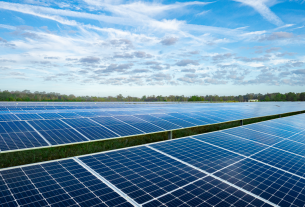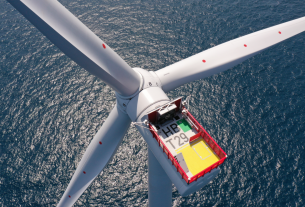United Kingdom – Offshore Wind and Carbon Capture and Storage (CCS) Colocation Forum has initiated two groundbreaking research projects—Project Colocate and Project Anemone.
The primary goals of Project Colocate and Project Anemone are to evaluate the feasibility of colocation of CCS and offshore wind activities on the seabed and explore opportunities arising from their symbiotic relationship. With the UK Government targeting 50 gigawatts of offshore wind energy and the capture of 20-30 million tons of CO2 annually by 2030, these research initiatives are crucial for informed decision-making.
Offshore wind and CCS unite
Project Colocate, led by the University of Aberdeen and funded by The Crown Estate and Crown Estate Scotland, focuses on identifying viable areas for colocation in the East Irish Sea and Central North Sea. The project employs bespoke monitoring plans to support the creation of a potential pipeline of test and demonstration sites for the future.
Complementary to this, Project Anemone, developed in collaboration with NECCUS and other stakeholders, aims to map the routes to realizing mutually beneficial opportunities arising from colocation. This project will provide practical guidance on how offshore wind and CCS technologies can seamlessly operate alongside each other, addressing challenges from construction to decommissioning.
Collaborative approach
With the burgeoning demand for offshore wind energy and CCS, effective coordination of seabed activities becomes imperative. The Forum, chaired by The Crown Estate, brings together key industry players, regulators, and government bodies to ensure a holistic and coordinated approach to seabed management, fostering collaboration between vital sectors.
Project Colocate and Project Anemone, with their collaborative approach, aim to accelerate the offshore wind and CCS capabilities, playing a vital role in the transition to a decarbonized economy.




